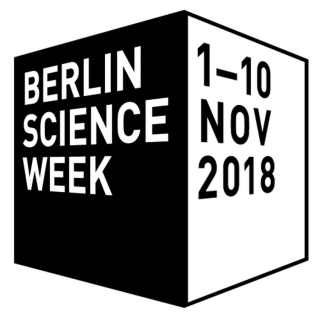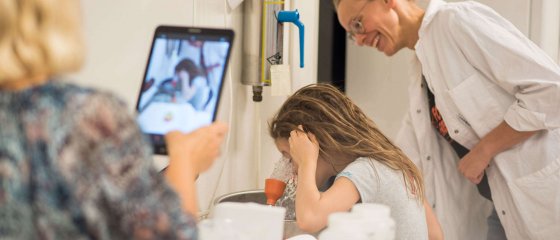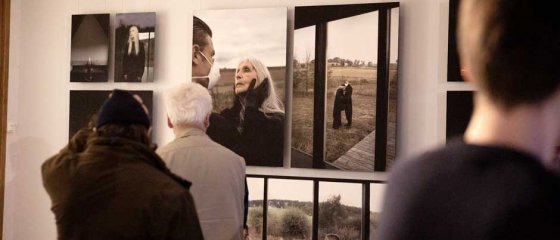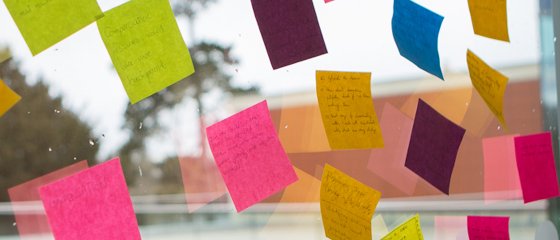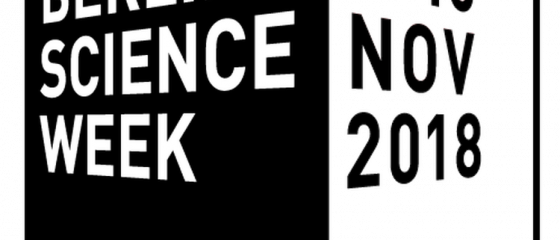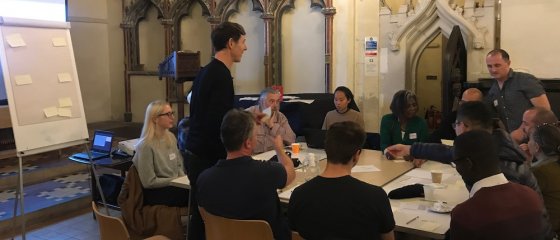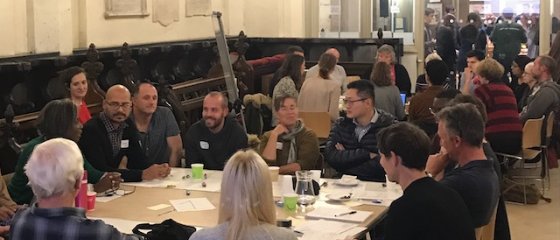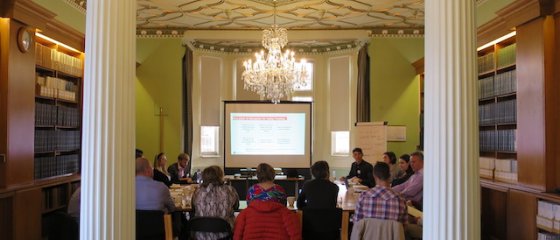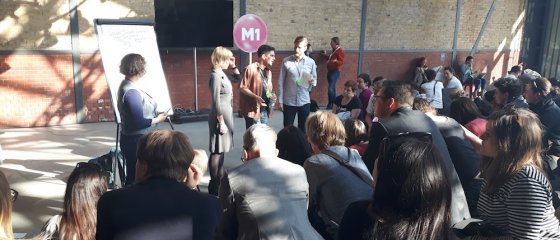Genome editing tools such as CRISPR are beginning to reshape the physical world around us, one base pair at a time. As an Artist in Residence in labs at the Max Delbrück Center for Molecular Medicine (MDC) and at STATE Studio Emilia Tikka explored how this could affect society in the future. The results will be showcased at an event in Berlin on November 1st.
genome editing
Do you want to be involved in life science research?
We are currently in the process of calling 6000 people in Czech Republic, Germany, Italy, Spain, Sweden and United Kingdom. If you one of the chosen ones, pick up the phone and tell us your views on if and how you would like to be involved. The results of this survey will help us design future training, co-creation activities and public dialogues in the Orion Open science project.
Eternal life through genome editing?
If there was a medicine that could stop physical ageing – would you take it? Artist Emilia Tikka’s installation, which is showcased at the Swedish National Museum of Science and Technology in Stockholm, uses this idea to stage a vision of the future. The artwork is the result of her collaboration with researchers in the field of genome editing. The exhibition was opened with a seminar on 23 January 2020.
Exploring public opinion on genome editing
At the core of the ORION project is co-creation, which involves collaborating with different groups of people (public, policy, industry) to come up with new ideas to support and increase the impact of scientific research. Over the next two years the Babraham Institute, together with MDC in Germany, VA in Sweden, and CEITEC in the Czech Republic will launch a co-creation exercise on emerging technologies.
From Understanding to Tinkering: the Future of Genome Research
Genome editing tools such as CRISPR are beginning to reshape the physical world around us, one base pair at a time. As an Artist in Residence in labs at the Max Delbrück Center for Molecular Medicine (MDC) and at STATE Studio, Emilia Tikka explored how this could affect society in the future and created the exhibition “AEON - Trajectories of Longevity and CRISPR”. The project was funded by the ORION project.
Inspiring story - Thinking differently through dialogue
To help open science up to a wider audience, ORION organised a number of public dialogues in the UK, Sweden, Germany and the Czech Republic during 2019-2020. One purpose of the dialogues was to explore public attitudes to genome editing technology, which has revolutionized scientific research in the past decade and has the potential for broad societal impact. The dialogues also aimed to understand how to engage the public on disruptive technologies and how public engagement strategies could vary between countries. Information about the potential use of the technology has led to a wide variety of different opinions and reactions from the public, which are not always based on scientific fact. The empirical evidence gathered during the dialogues will provide the basis of future communications strategies within the ORION institutions.
Let's talk about genome editing
What does the public think about the new genome editing technology CRISPR and how should we talk about it? The ORION project has organised public dialogues in the Czech Republic, Germany, Sweden and the UK to find out. The aim with the public dialogues was to discuss the risks and opportunities of this disruptive technology and identify any concerns the public might have.
Let’s make science open! Meet us at ESOF 2018 in Toulouse
The aim with ORION is to explore ways in which research and funding organisations in life sciences and biomedicine can open up the way they fund, organise, and practice research. We have recently conducted a study in six European countries about the public’s attitudes toward Open Science and genome editing. At ESOF 2018 we would like to have your views.
What do the public think about genome editing?
That’s what we hope to find out through a series of public dialogues on genome editing in the ORION partnering countries Czech Republic, Germany, Sweden and the UK. The aim with the public dialogues is to discuss the risks and opportunities of disruptive technologies and identify any concerns the public might have.
What would you reveal for research?
Dr Luiza Bengtsson and Dr Emma Harris of the ORION Training Team together with their fellow MDC scientists Professor Uwe Ohler and Dr Philipp Boß held a citizen science session about their research topics at the re:publica conference in Berlin in May and discovered the fears and fascination sharing health data holds for the public.
